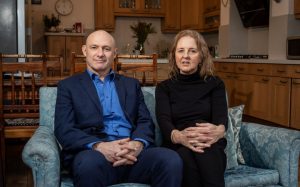Children cannot consent to transgender treatment, a nurse bringing a landmark legal case has said, claiming that many are autistic, homosexual or just confused.
Susan Evans, 62, a former psychiatric nurse at the Tavistock and Portman NHS foundation trust, said that “experimental” and “invasive medical treatment” should be prevented in order to protect children.
She is working with a woman known as “Mrs A” the mother of an autistic 15-year-old girl who is on the Gids waiting list.
Later this week, the pair will lodge legal papers at the High Court in order to commence proceedings in a judicial review against the trust and NHS England. Their legal team will argue that the provision of puberty blockers and cross-sex hormones at the Tavistock for those under 18 is illegal because children cannot give valid consent to the treatment.
However transgender children’s charities have criticized the case, saying that children should not be denied the right to make decisions about their own bodies, simply because they are trans.
Ms Evans told The Telegraph that “some children are referred despite having autism, being homosexual or suffering some form of trauma or sexual abuse”.
She added that sometimes such children are referred for treatment “after only an hour or two”, and that most do not have access to therapy unless they are “very lucky”.

(Susan and Marcus Evans, who both worked at the Tavistock Clinic but resigned over concerns regarding how the clinic was giving children with gender dysphoria puberty blockers at such a young age)
Speaking to BBC Radio 4’s Today show, the psychiatric nurse also said that children as young as nine or ten are being asked to give informed consent “to a completely experimental treatment for which the long term consequences are not known”.
“No matter how clever or mature they seem, I don’t think a child can possibly comprehend what their future adult life will be like and what they’re consenting to potentially give up or risk to their medical health.”
“These children are not coming forward with a straightforward symptom like a skin rash or something of that nature, they’re coming as people, as individuals, who are confused or distressed and very often have other comorbid aspects.
“For example, 30 per cent plus are autistic, many of them have suffered some form of trauma in their earlier lives. Some of them are just very confused, anxious, or socially anxious children, but I think this sort of rapid affirmation and fast tracking after maybe three, four or five appointments I think is just terrible.
“I really feel it’s got to be questioned in the courts now because we’ve tried to talk to the tavistock as have other staff at the tavistock and it doesn’t work.”
Read more: The Telegraph
Ask me anything
Explore related questions





